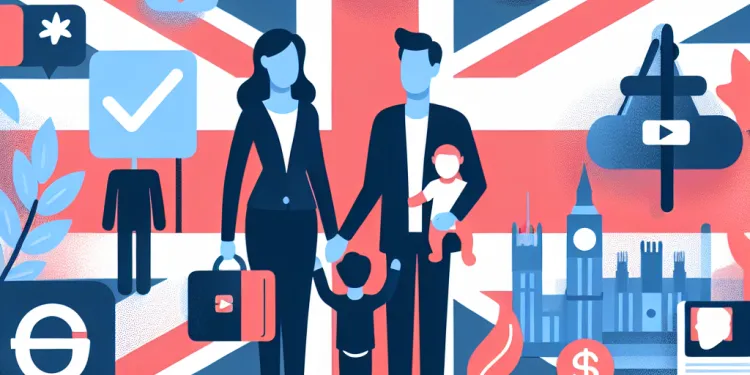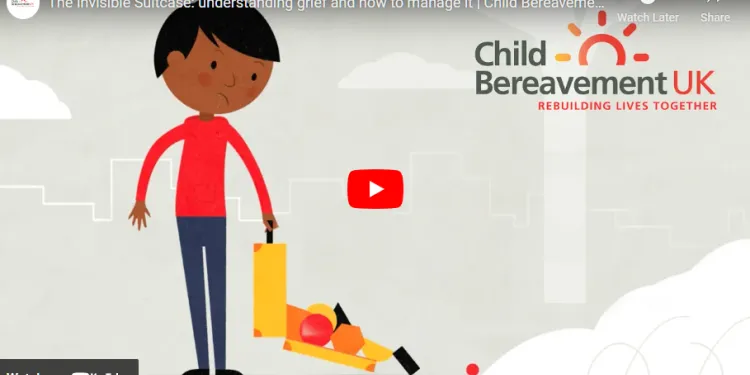
Find Help
More Items From Ergsy search
-

Is bereavement leave the same as compassionate leave?
Relevance: 100%
-

Am I entitled to Bereavement Leave?
Relevance: 78%
-

Do I get paid for bereavement leave?
Relevance: 74%
-

What is bereavement leave?
Relevance: 73%
-

Can bereavement leave be taken consecutively with other leaves?
Relevance: 71%
-

Can I be denied bereavement leave?
Relevance: 71%
-

Can I extend my bereavement leave?
Relevance: 70%
-

Are part-time employees entitled to bereavement leave?
Relevance: 66%
-

How should I request bereavement leave?
Relevance: 66%
-

Does bereavement leave cover travel costs?
Relevance: 65%
-

Can I take bereavement leave for the death of a close friend?
Relevance: 64%
-

How many days of bereavement leave can I take?
Relevance: 62%
-

Can bereavement leave be counted against my PTO?
Relevance: 61%
-

What documentation might I need for bereavement leave?
Relevance: 60%
-

Does bereavement leave cover funerals for cultures or religions with extended mourning periods?
Relevance: 59%
-

Navigating the Changes to Parental Leave Regulations
Relevance: 38%
-

Upcoming Changes to Parental Leave Policies in the UK
Relevance: 38%
-

Are gig workers entitled to sick leave?
Relevance: 36%
-

Can the decision to leave WHO be reversed?
Relevance: 35%
-

Are there any protections for employees on maternity leave during redundancy?
Relevance: 35%
-

Is the US the only country to leave the WHO?
Relevance: 33%
-

Am I legally entitled to bereavement leave?
Relevance: 33%
-

What are the strategic implications of the US leaving WHO?
Relevance: 32%
-

Did all American states support the decision to leave WHO?
Relevance: 32%
-

Did Congress support the decision to leave the WHO?
Relevance: 31%
-

What impact does leaving WHO have on US public health policy?
Relevance: 31%
-

How does leaving the fire service before pension age affect my benefits?
Relevance: 31%
-

What are the health impacts of the US leaving WHO?
Relevance: 31%
-

Why did the US decide to leave the World Health Organization (WHO)?
Relevance: 30%
-

Did the US propose reforms to the WHO before deciding to leave?
Relevance: 30%
-

What are the financial implications of the US leaving WHO?
Relevance: 30%
-

What were the reasons given by the US leadership for leaving WHO?
Relevance: 29%
-

What was the global reaction to the US's decision to leave WHO?
Relevance: 29%
-

Child Bereavement
Relevance: 29%
-

Can I take bereavement leave if I am a contractor or freelancer?
Relevance: 28%
-

Who qualifies as an immediate family member for bereavement leave?
Relevance: 26%
-

What if I need bereavement leave for multiple relatives at different times?
Relevance: 25%
-

What should I do if my employer denies my bereavement leave request unfairly?
Relevance: 25%
-

Can bereavement leave affect my job status or performance reviews?
Relevance: 25%
-

How did WHO respond to the US's announcement to leave?
Relevance: 22%
Understanding Bereavement Leave
Bereavement leave, commonly known in the UK as compassionate leave, is a form of leave that employees may take after the death of a close family member or loved one. This type of leave allows individuals the time to grieve, arrange and attend funerals, and manage related affairs without the stress of work commitments.
Compassionate Leave: A Broader Term
While bereavement leave specifically pertains to the time taken off due to the death of a loved one, compassionate leave is often used more broadly. In addition to bereavement, compassionate leave may cover other distressing life events that require an employee's immediate attention. These can include serious family illnesses, accidents, or crises that demand their presence or intervention.
UK Regulations on Bereavement and Compassionate Leave
In the UK, there is no statutory right to paid bereavement leave, but employees may have entitlements established under their employment contracts. Many employers offer bereavement or compassionate leave, recognizing the emotional and practical needs following a death in the family. The Employment Rights Act 1996 provides for 'reasonable' time off for family emergencies, which can include bereavement, but the term 'reasonable' is not strictly defined.
Differentiating Bereavement and Compassionate Leave
Although the terms are often used interchangeably, it is important to understand their distinctions. Bereavement leave is specifically taken following a death, whereas compassionate leave could be granted for other urgent personal issues. This broader category addresses the spectrum of circumstances that might require an employee’s immediate and compassionate attention.
Employer Policies and Entitlements
Many employers have policies that clearly outline how bereavement and compassionate leave is managed. These policies typically define who qualifies as a 'close' family member, the amount of leave permitted, and whether the leave will be paid or unpaid. Employees are advised to consult their employment contracts or speak with their HR departments to understand their entitlements and the procedures for applying for such leave.
Conclusion
In summary, while bereavement leave and compassionate leave are closely related concepts, they are not exactly synonymous. Bereavement leave is specifically for dealing with a loss due to death, whereas compassionate leave might encompass a wider range of urgent personal circumstances. Understanding the specific terms of your employment contract in the UK is crucial for knowing your rights and options in these situations.
Understanding Bereavement Leave
Bereavement leave is also called compassionate leave in the UK. It is time off work when someone you love has died. This leave helps you have time to feel sad, go to the funeral, and handle things without worrying about work.
Compassionate Leave: A Broader Term
Bereavement leave is when you take time off because someone has died. Compassionate leave can also be for other tough times. These might be serious family sickness, accidents, or big problems. You might need to be with your family or help them in tough times.
UK Rules on Bereavement and Compassionate Leave
In the UK, there is no strict law that says you must get paid for bereavement leave. But your work contract might have details about it. Many workplaces offer this leave for death in the family. The law says you can have 'reasonable' time off for family emergencies, including when someone dies. But 'reasonable' is not exactly explained.
Differences Between Bereavement and Compassionate Leave
Sometimes people mix up these terms. Bereavement leave is only when someone dies. Compassionate leave can be for other personal urgent matters. It’s important to know the difference.
Employer Policies and Rights
Many workplaces have rules for bereavement and compassionate leave. They say who counts as a 'close' family member, how much time you can take off, and if it will be paid or not. Check your work contract or talk to your HR department to know your rights and how to ask for this leave.
Conclusion
In short, bereavement leave and compassionate leave are similar but not the same. Bereavement leave is for when someone has died. Compassionate leave is for other urgent personal issues. Knowing your work contract in the UK will help you understand your rights and choices when you need to take leave.
Frequently Asked Questions
Is bereavement leave the same as compassionate leave?
Typically, bereavement leave specifically pertains to time off after the death of a family member or close friend, while compassionate leave may cover other serious personal situations, including serious family illness.
What situations are covered under bereavement leave?
Bereavement leave generally covers the death of a close family member or loved one.
What situations are covered under compassionate leave?
Compassionate leave may include serious illness or injury of a close family member, as well as bereavement.
How many days are typically given for bereavement leave?
The number of days can vary by company policy or local laws, but it is often around 3-5 days.
Can compassionate leave be extended beyond bereavement?
Yes, compassionate leave can often extend to cover situations beyond bereavement, depending on company policy.
Are employees paid during bereavement leave?
Whether bereavement leave is paid or unpaid depends on the employer's policy and applicable labor laws.
Do all employers offer bereavement leave?
Not all employers offer bereavement leave, as it can depend on company size, location, and industry standards.
How does compassionate leave differ by country?
Compassionate leave policies can vary significantly by country, depending on national labor laws and cultural norms.
What is the legal requirement for compassionate leave?
Legal requirements for compassionate leave vary and may be defined by local labor laws or employment contracts.
Is proof required for bereavement leave?
Some employers may require proof, such as a death certificate or obituary, to grant bereavement leave.
Can compassionate leave be used for pets?
Typically compassionate leave is not used for pets, but some employers may offer flexibility or personal leave for such matters.
How should an employee request bereavement leave?
Employees should follow their company's policy, which usually involves notifying a supervisor or HR as soon as possible.
Can bereavement leave be denied?
Depending on the policy and legal requirements, an employer might deny bereavement leave, but it is generally granted.
Does bereavement leave cover funerals for non-family members?
Policies vary, but some employers may allow bereavement leave for very close non-family members.
Is a set amount of time mandated for compassionate leave?
There is usually no mandated amount, and it often depends on the employer's discretion or applicable laws.
What is the difference between paid and unpaid leave for bereavement?
Paid leave means the employee receives their salary during absence, while unpaid leave does not.
Are part-time employees eligible for bereavement leave?
Eligibility for part-time employees varies by employer policy, but many do offer proportional leave.
How does bereavement leave interact with other types of leave?
Bereavement leave is usually separate from other types of leave, like vacation or sick leave.
What documentation might be needed to apply for compassionate leave?
Documentation could include medical certificates or notices, depending on the circumstance.
Should employees check with HR for specific leave policies?
Yes, employees should consult their HR department for detailed information on leave policies.
Is bereavement leave the same as compassionate leave?
When someone we care about dies, we might need time off work. This is called "bereavement leave." Sometimes, when you need time off because of a sad or hard time (like when someone is very sick), it's called "compassionate leave."
Both give you time off work, but they are for different reasons. Bereavement leave is for when someone dies. Compassionate leave can be for other hard times too.
If you are unsure, ask your boss or look at your work's rule book. They can help you understand what to do.
Bereavement leave means you can take time off work when someone you love, like a family member or close friend, dies.
Compassionate leave allows you to take time off work for other serious situations, like when a family member is very sick.
When can you take time off for bereavement?
Bereavement leave is time off work when someone close to you dies. This could be a family member or someone you love a lot.
When can you take compassionate leave?
Compassionate leave is special time off from work. You can take it when someone close to you is very sick or hurt. You can also take it if someone close to you has died.
How many days off do people usually get when someone they love dies?
The number of days can change depending on company rules or local laws. But it is usually about 3 to 5 days.
Can you take more compassionate leave after someone dies?
Sometimes people need more time off work if a family member or close friend dies. You might be able to take extra compassionate leave for other things, like to feel better or to help your family. It's a good idea to talk to your boss or the person who helps with work questions. They can tell you what your work can do to help. If you find reading hard, you can ask someone to read this with you. You can also use tools that read text out loud, like screen readers.Yes, sometimes you can take compassionate leave for reasons other than someone dying. This depends on your workplace rules.
Do workers get paid when they take time off because someone died?
Bereavement leave means taking time off work when someone close to you dies. If you get paid during this time, or if it is unpaid, depends on your company’s rules and the law where you live.
You can ask your boss or someone in the Human Resources department. They can tell you if you get paid during bereavement leave.
Using calendars or lists can help you remember important rules or steps. Also, using reminders on your phone can help you keep track of important dates and things to do.
Do all jobs give time off when someone dies?
Not all jobs give time off when someone in your family dies. Whether you get this time off can depend on how big the company is, where it is, and what kind of work they do.
If you need help with understanding this, you can ask someone to explain it to you. It might also help to use simple tools like reading apps or ask a friend to read it with you.
Is compassionate leave different in each country?
Compassionate leave is time off work when something sad happens, like when someone close to you is very sick or has died. In each country, the rules about compassionate leave might change. This means you might get different amounts of time off, or the reasons you can take leave might be different. To understand compassionate leave better, you can: 1. **Ask your job manager** - They can tell you the rules for your country and work. 2. **Look online** - Websites like government or company sites can help explain the rules. 3. **Talk with others** - Friends or family might know about the rules, too. These tips can help you learn how compassionate leave works where you live.Compassionate leave rules can be different in each country. This depends on the country's work laws and what is normal in their culture.
What does the law say about taking time off for compassion?
Different places have different rules about time off work when someone you care about is sick or passes away. These rules might be in the law or in your work contract.
Do I need to show anything to take time off when someone dies?
Some bosses might ask for proof, like a death paper or a notice, to give time off for grieving.
Can you take time off work if your pet dies?
If your pet dies, some jobs might let you take time off. This is called compassionate leave. Not all jobs allow it, so you need to ask.
If you are upset about losing your pet, you can try talking to someone like a friend or family member. Drawing pictures, writing stories, or playing with other pets can also help you feel better.
Remember, it's okay to feel sad when a pet dies. Talking about how you feel can really help.
Usually, you can't take time off work to say goodbye to a pet. But some bosses might let you take time off or use personal leave if you need it.
How can a worker ask for time off when someone they love dies?
Workers should listen to the rules at their job. This means telling their boss or the HR team as soon as they can.
Can You Be Told No to Bereavement Leave?
Most of the time, when someone you love dies, work lets you have time off. This is called bereavement leave. But sometimes, the rules mean your boss might say no.
Can I take time off work for a funeral of someone who is not family?
Different workplaces have different rules. Some jobs might let you have time off if someone very important to you who is not family dies.
Is there a set time for taking compassionate leave?
Compassionate leave means taking time off work when a family member dies or is very sick. There is no fixed number of days for compassionate leave. Different jobs and places may have different rules.
Here are some tips to help understand:
- Ask your boss or the HR team about the rules.
- Look at your work contract to see what it says.
- You can also ask a family member or friend for help.
There is no set rule.
How much money you get depends on your boss or the laws in your area.
If you find it hard to understand, you can ask someone for help.
What is the difference between paid and unpaid time off when someone dies?
When someone you care about dies, you might need time off work. This is called "bereavement leave."
Here is the difference between paid and unpaid time off:
- Paid Time Off: Your boss gives you money while you take time off.
- Unpaid Time Off: You take time off, but you do not get money from your job.
If you find reading hard, you can use tools like a screen reader to read the text out loud.
Paid leave means you still get money when you don't go to work. Unpaid leave means you don't get money when you don't go to work.
Can part-time workers take time off if someone dies?
Whether part-time workers get leave depends on the company rules. But many companies do give some leave to part-time workers.
How does time off for a death work with other time off?
If someone close to you dies, you might get time off. This is called bereavement leave.
There are other kinds of time off too, like vacation time or sick leave. These are different.
If you need both kinds of leave at the same time, talk to the person in charge of your time off at work. They can help you understand what to do.
Tools that can help are a calendar to plan your time off, or asking someone at work to help explain it to you.
Bereavement leave is different from other time off. It is not the same as holiday time or time off when you are sick.
What papers do you need to ask for compassionate leave?
If you are asking for time off because someone is sick or has died, you might need to give some papers.
Here is what you might need:
- A note from your doctor or your family member's doctor.
- A letter about the situation, like from a hospital.
- Something showing your relationship, like a birth or marriage certificate.
If you find it hard to gather these papers, here are some tips:
- Ask a friend or family member to help you collect the papers.
- Use a checklist to make sure you have everything.
- You can also talk to someone at your workplace for help.
Documentation might be a note from the doctor or a paper that explains something, depending on what is needed.
Do workers need to ask HR about time-off rules?
If you work for a company, you might want to know the rules for taking time off. It's a good idea to ask the Human Resources (HR) team about this.
Things you can do:
- Talk to someone from the HR team if you have questions.
- Ask for a copy of the time-off rules to read.
- Use a notebook to write down important information.
Remember, HR is there to help you understand the rules!
Yes, workers should ask their HR department to learn more about taking time off work.
Useful Links
This website offers general information and is not a substitute for professional advice.
Always seek guidance from qualified professionals.
If you have any medical concerns or need urgent help, contact a healthcare professional or emergency services immediately.
Some of this content was generated with AI assistance. We’ve done our best to keep it accurate, helpful, and human-friendly.
- Ergsy carfully checks the information in the videos we provide here.
- Videos shown by Youtube after a video has completed, have NOT been reviewed by ERGSY.
- To view, click the arrow in centre of video.
- Most of the videos you find here will have subtitles and/or closed captions available.
- You may need to turn these on, and choose your preferred language.
- Go to the video you'd like to watch.
- If closed captions (CC) are available, settings will be visible on the bottom right of the video player.
- To turn on Captions, click settings .
- To turn off Captions, click settings again.
More Items From Ergsy search
-

Is bereavement leave the same as compassionate leave?
Relevance: 100%
-

Am I entitled to Bereavement Leave?
Relevance: 78%
-

Do I get paid for bereavement leave?
Relevance: 74%
-

What is bereavement leave?
Relevance: 73%
-

Can bereavement leave be taken consecutively with other leaves?
Relevance: 71%
-

Can I be denied bereavement leave?
Relevance: 71%
-

Can I extend my bereavement leave?
Relevance: 70%
-

Are part-time employees entitled to bereavement leave?
Relevance: 66%
-

How should I request bereavement leave?
Relevance: 66%
-

Does bereavement leave cover travel costs?
Relevance: 65%
-

Can I take bereavement leave for the death of a close friend?
Relevance: 64%
-

How many days of bereavement leave can I take?
Relevance: 62%
-

Can bereavement leave be counted against my PTO?
Relevance: 61%
-

What documentation might I need for bereavement leave?
Relevance: 60%
-

Does bereavement leave cover funerals for cultures or religions with extended mourning periods?
Relevance: 59%
-

Navigating the Changes to Parental Leave Regulations
Relevance: 38%
-

Upcoming Changes to Parental Leave Policies in the UK
Relevance: 38%
-

Are gig workers entitled to sick leave?
Relevance: 36%
-

Can the decision to leave WHO be reversed?
Relevance: 35%
-

Are there any protections for employees on maternity leave during redundancy?
Relevance: 35%
-

Is the US the only country to leave the WHO?
Relevance: 33%
-

Am I legally entitled to bereavement leave?
Relevance: 33%
-

What are the strategic implications of the US leaving WHO?
Relevance: 32%
-

Did all American states support the decision to leave WHO?
Relevance: 32%
-

Did Congress support the decision to leave the WHO?
Relevance: 31%
-

What impact does leaving WHO have on US public health policy?
Relevance: 31%
-

How does leaving the fire service before pension age affect my benefits?
Relevance: 31%
-

What are the health impacts of the US leaving WHO?
Relevance: 31%
-

Why did the US decide to leave the World Health Organization (WHO)?
Relevance: 30%
-

Did the US propose reforms to the WHO before deciding to leave?
Relevance: 30%
-

What are the financial implications of the US leaving WHO?
Relevance: 30%
-

What were the reasons given by the US leadership for leaving WHO?
Relevance: 29%
-

What was the global reaction to the US's decision to leave WHO?
Relevance: 29%
-

Child Bereavement
Relevance: 29%
-

Can I take bereavement leave if I am a contractor or freelancer?
Relevance: 28%
-

Who qualifies as an immediate family member for bereavement leave?
Relevance: 26%
-

What if I need bereavement leave for multiple relatives at different times?
Relevance: 25%
-

What should I do if my employer denies my bereavement leave request unfairly?
Relevance: 25%
-

Can bereavement leave affect my job status or performance reviews?
Relevance: 25%
-

How did WHO respond to the US's announcement to leave?
Relevance: 22%


